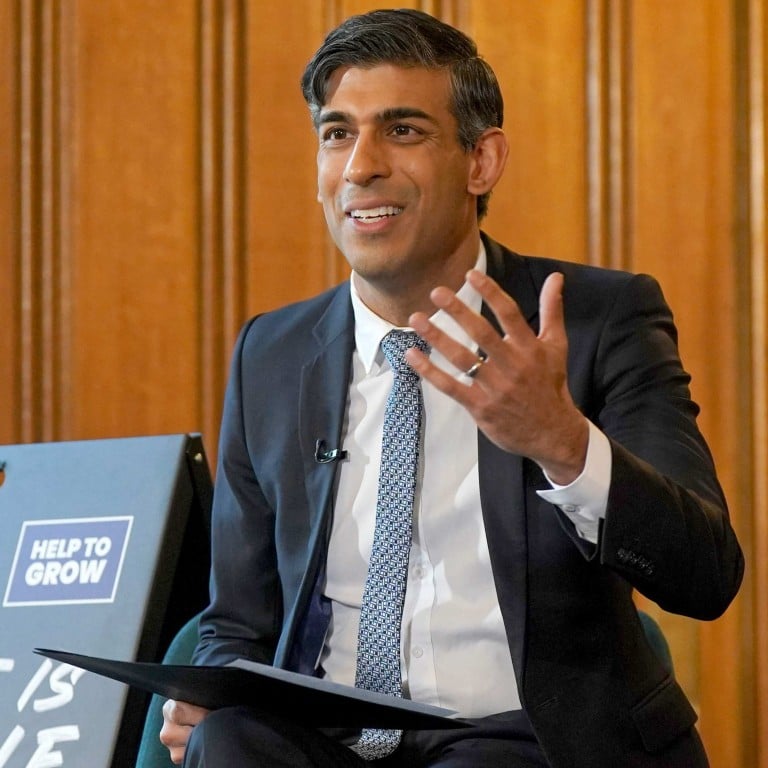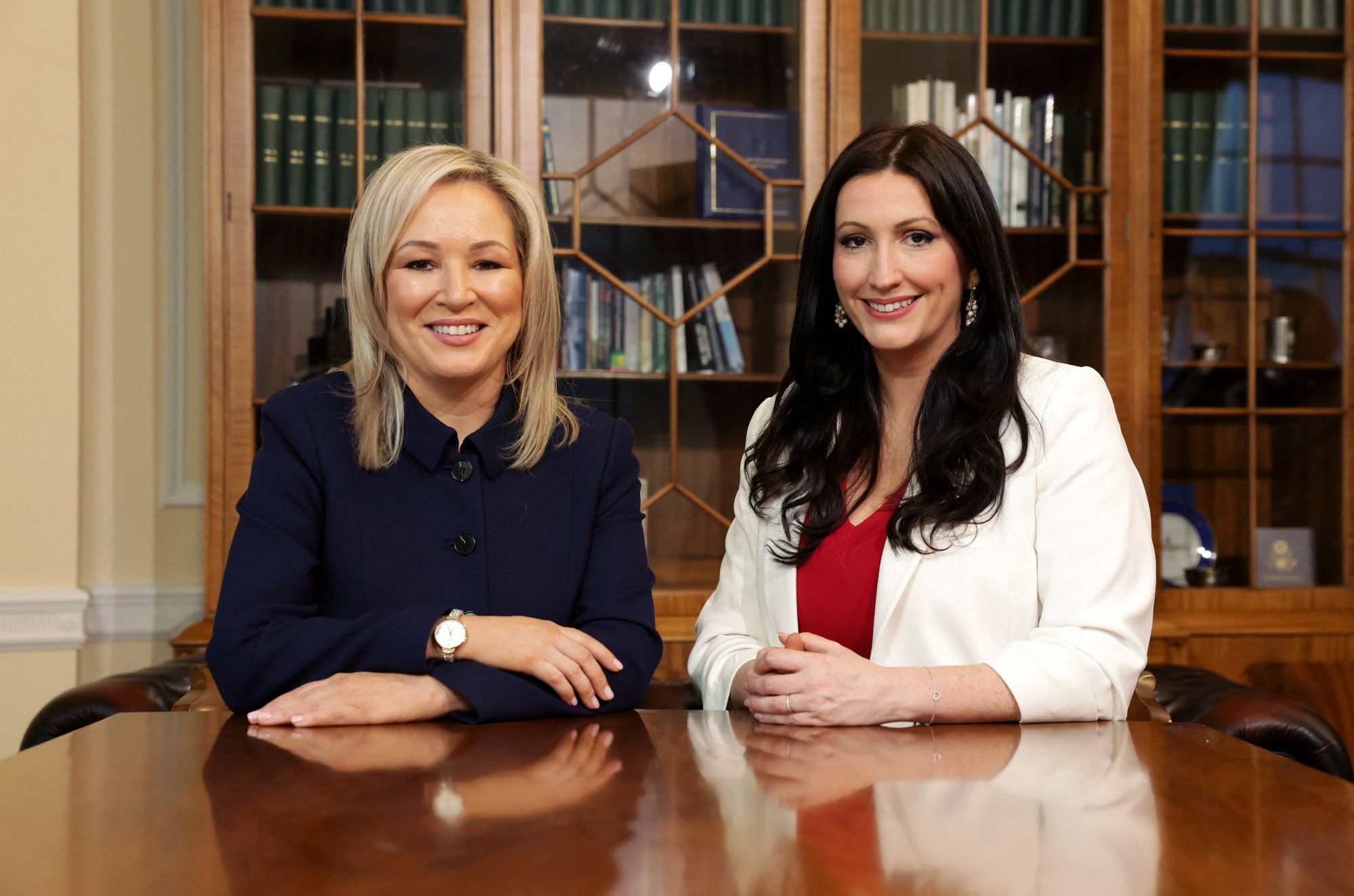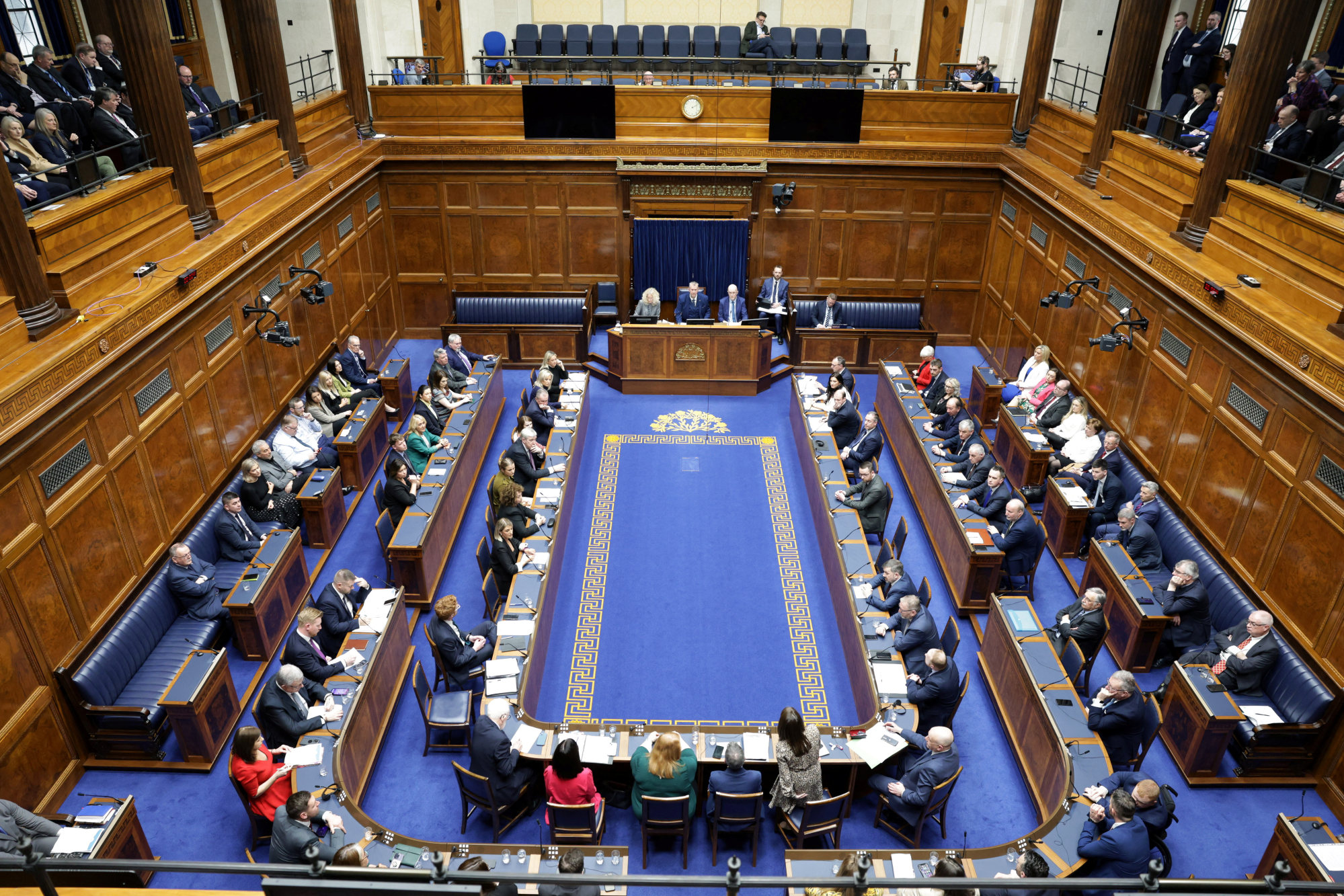
UK’s Sunak in Northern Ireland after O’Neill becomes first nationalist leader
- Rishi Sunak will meet Sinn Fein’s Michelle O’Neill and DUP leader Emma Little-Pengelly at Stormont on Monday, his Downing Street office said
- O’Neill predicts Northern Ireland will hold vote on unification with Ireland; UK PM said country has ‘brighter future’ with power sharing return
Northern Ireland faces a “brighter future” with the restoration of devolved government after two years of deadlock, Britain’s Prime Minister Rishi Sunak said on a visit to Belfast on Sunday, the day after Sinn Fein’s Michelle O’Neill made history by becoming its first nationalist leader.
Following Saturday’s restoration of power-sharing in Belfast that allowed her to take up her role, pro-Irish unity politician O’Neill predicted that the UK territory will hold a vote on unification with Ireland within the next decade.

“In the last few days we’ve made significant progress towards a brighter future for people here,” Sunak told broadcasters on Sunday.
“Everyone has worked really hard to bring this moment about, everyone is committed to making it work and delivering for people in Northern Ireland who had been without their devolved government for far too long,” he said.
Power sharing government in the region was a key part of a 1998 peace deal that ended decades of political and sectarian violence.
Sinn Fein is the former political wing of the Irish Republican Army (IRA), which campaigns on both sides of the Irish border for an end to British rule in Northern Ireland and the creation of a united Ireland.
Ireland takes UK to European court over ‘Troubles’ amnesty law
O’Neill told Sky News on Sunday that it was a “decade of opportunity” for Northern Ireland.
“We can have power-sharing, we can make it stable, we can work together every day in terms of public services, and whilst we also pursue our equally legitimate aspirations,” she said.
O’Neill said she expected a referendum on reunifying with the Republic of Ireland in the next 10 years.
“There are so many things that are changing all the old norms, the nature of the state, the fact that a nationalist republican was never supposed to be first minister. This all speaks to that change.”
The Democratic Unionist party (DUP), which collapsed the devolved government in 2022 over its opposition to UK-EU trading terms for the territory, now holds the deputy first minister post, among others.
The DUP’s Emma Little-Pengelly will serve in the role, which has equal weight with O’Neill’s.
Michelle O’Neill to make history as N. Ireland’s first nationalist leader
Sunak’s visit – his seventh to the conflict-scarred region since becoming prime minister in October 2022 – will also focus on “community engagements”, Downing Street said.
His first will be meeting “emergency responders, community heroes and families of those directly helped by the service” on Sunday evening.
“Everyone is committed to the Belfast Good Friday agreement, but I think everyone also agrees that now is the time to focus on delivering on the day-to-day issues that matter to people, to families, to businesses in Northern Ireland,” Sunak said.
Northern Ireland was carved from Ireland in 1921 with an inbuilt Protestant majority, after pro-UK unionists had threatened civil war as the island sought self-rule from Britain.
Instead, three decades of sectarian conflict erupted within the UK territory in the late 1960s.

A 1998 peace deal largely ended the violence and provides for the possibility of an all-Ireland vote on unification, often referred to as a border poll.
The mechanism for initiating such a referendum was never spelled out, but the trigger is seen as consistent reliable polling on the issue.
But until this week, the DUP boycott had led to stalemate.
Ireland takes UK to European court over ‘Troubles’ amnesty law
As part of its agreement with the DUP to restart power-sharing, Sunak’s government released a paper stating it “sees no realistic prospect of a border poll leading to a united Ireland”, citing recent polling.
“We believe that … Northern Ireland’s future in the UK will be secure for decades to come and as such the conditions for a border poll are unlikely to be objectively met,” it added.
O’Neill said she disagrees with the assessment.
“I would absolutely contest what the British government have said in that document, insofar as my election to the post of first minister demonstrates the change that’s happening on this island, and that’s a good thing.”
Additional reporting by Reuters

.png?itok=arIb17P0)